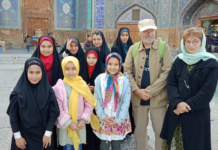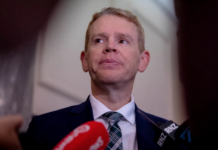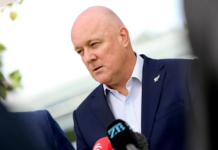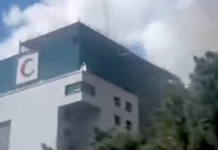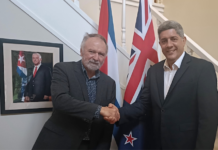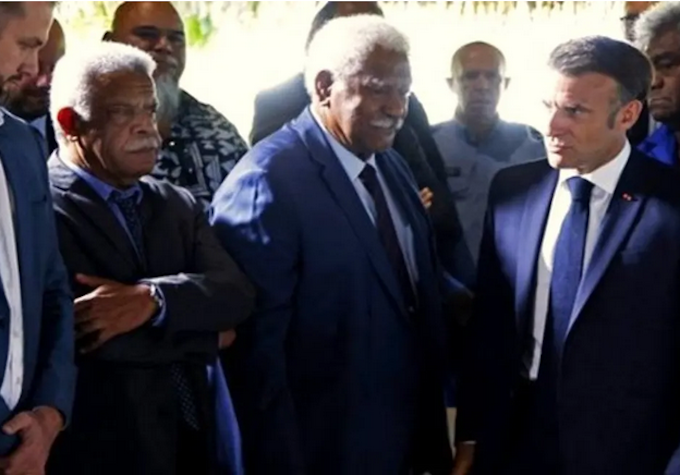
By Patrick Decloitre, RNZ Pacific correspondent French Pacific desk
French President Emmanuel Macron has sent a formal invitation to “all New Caledonia stakeholders” for talks in Paris on the French Pacific territory’s political and economic future to be held on July 2.
The confirmation came on Thursday in the form of a letter sent individually to an undisclosed list of recipients and June 24.
The talks follow a series of roundtables fostered earlier this year by French Minister for Overseas Manuel Valls.
But the latest talks, held in New Caledonia under a so-called “conclave” format, stalled on May 8.
This was mainly because several main components of the pro-France (anti-independence) parties said the draft agreement proposed by Valls was tantamount to a form of independence, which they reject.
The project implied that New Caledonia’s future political status vis-à-vis France could be an associated independence “within France” with a transfer of key powers (justice, defence, law and order, foreign affairs, currency ), a dual New Caledonia-France citizenship and an international standing.
Instead, the pro-France Rassemblement-LR and Loyalistes suggested another project of “internal federalism” which would give more powers (including on tax matters) to each of the three provinces, a notion often criticised as a de facto partition of New Caledonia.
Local elections issue
In May 2024, on the sensitive issue of eligibility at local elections, deadly riots broke out in New Caledonia, resulting in 14 deaths and more than 2 billion euros (NZ$3.8 billion) in damage.
In his letter, Macron writes that although Valls “managed to restore dialogue…this did not allow reaching an agreement on (New Caledonia’s) institutional future”.
“This is why I decided to host, under my presidency, a summit dedicated to New Caledonia and associating the whole of the territory’s stakeholders”.
Macron also wrote that “beyond institutional topics, I wish that our exchanges can also touch on (New Caledonia’s) economic and societal issues”.
Macron made earlier announcements, including on 10 June 2025, on the margins of the recent UNOC Oceans Summit in Nice (France), when he dedicated a significant part of his speech to Pacific leaders attending a “Pacific-France” summit to the situation in New Caledonia.
“Our exchanges will last as long as it takes so that the heavy topics . . . can be dealt with with all the seriousness they deserve”.
Macron also points out that after New Caledonia’s “crisis” broke out on 13 May 2024, “the tension was too high to allow for a dialogue between all the components of New Caledonia’s society”.

A new deal?
The main political objective of the talks remains to find a comprehensive agreement between all local political stakeholders, in order to arrive at a new agreement that would define the French Pacific territory’s political future and status.
This would then allow to replace the 27-year-old Nouméa Accord, signed in 1998.
That pact put a heavy focus on the notions of “living together” and “common destiny” for New Caledonia’s indigenous Kanaks and all of the other components of its ethnically and culturally diverse society.
It also envisaged an economic “rebalancing” between the Northern and Islands provinces and the more affluent Southern province, where the capital Nouméa is located.
The Nouméa Accord also contained provisions to hold three referendums on self-determination.
The three polls took place in 2018, 2020 and 2021, all of those resulting in a majority of people rejecting independence.
But the last referendum, in December 2021, was largely boycotted by the pro-independence movement.
‘Examine the situation’
According to the Nouméa Accord, after the referendums, political stakeholders were to “examine the situation thus created”, Macron recalled.
But despite several attempts, including under previous governments, to promote political talks, the situation has remained deadlocked and increasingly polarised between the pro-independence and the pro-France camps.
A few days after the May 2024 riots, Macron made a trip to New Caledonia, calling for the situation to be appeased so that talks could resume.
In his June 10 speech to Pacific leaders, Macron also mentioned a “new project” and in relation to the past referendums process, pledged “not to make the same mistakes again”.
He said he believed the referendum, as an instrument, was not necessarily adapted to Melanesian and Kanak cultures.
In practice, the Paris “summit” would also involve French minister for Overseas Manuel Valls.
The list of invited participants would include all parties, pro-independence and pro-France, represented at New Caledonia’s Congress (the local parliament).
But it would also include a number of economic stakeholders, as well as a delegation of Mayors of New Caledonia, as well as representatives of the civil society and NGOs.
Talks could also come in several formats, with the political side being treated separately.
The pro-independence platform FLNKS (Kanak and Socialist National Liberation Front) has to decide at the weekend whether it will take part in the Paris talks.
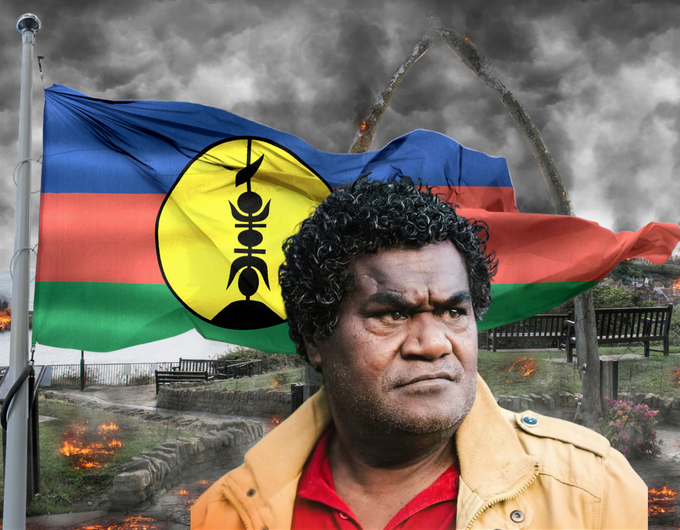
Will Christian Téin take part?
During a whirlwind visit to New Caledonia in June 2024, Macron met Christian Téin, the leader of a pro-independence CCAT (Field Action Coordination Cell), created by Union Calédonienne (UC).
Téin was arrested and jailed in mainland France.
In August 2024, while in custody in the Mulhouse prison (northeastern France), he was elected in absentia as president of a UC-dominated FLNKS.
Even though he still faces charges for allegedly being one of the masterminds of the May 2024 riots, Téin was released from jail on June 12 on condition that he does not travel to New Caledonia and reports regularly to French judges.
On the pro-France side, Téin’s release triggered mixed angry reactions.
Other pro-France hard-line components said the Kanak leader’s participation in the Paris talks was simply “unthinkable”.
Pro-independence Tjibaou said Téin’s release was “a sign of appeasement”, but that his participation was probably subject to “conditions”.
“But I’m not the one who makes the invitations,” he told public broadcaster NC la 1ère on 15 June 2025.
FLNKS spokesman Dominique Fochi said in a release Téin’s participation in the talks was earlier declared a prerequisite.
“Now our FLNKS president has been released. He’s the FLNKS boss and we are awaiting his instructions,” Fochi said.
At former roundtables earlier this year, the FLNKS delegation was headed by Union Calédonienne (UC, the main and dominating component of the FLNKS) president Emmanuel Tjibaou.
‘Concluding the decolonisation process’, says Valls
In a press conference on Tuesday in Paris, Valls elaborated some more on the upcoming Paris talks.
“Obviously there will be a sequence of political negotiations which I will lead with all of New Caledonia’s players, that is all groups represented at the Congress. But there will also be an economic and social sequence with economic, social and societal players who will be invited”, Valls said.
During question time at the French National Assembly in Paris on 3 June 2025, Valls said he remained confident that it was “still possible” to reach an agreement and to “reconcile” the “contradictory aspirations” of the pro-independence and pro-France camps.
During the same sitting, pro-France New Caledonia MP Nicolas Metzdorf decried what he termed “France’s lack of ambition” and his camp’s feeling of being “let down”.
The other MP for New Caledonia’s, pro-independence Emmanuel Tjibaou, also took the floor to call on France to “close the colonial chapter” and that France has to “take its part in the conclusion of the emancipation process” of New Caledonia.
“With the President of the Republic and the Prime Minister, and the political forces, we will make offers, while concluding the decolonisation process, the self-determination process, while respecting New Caledonians’ words and at the same time not forgetting history, and the past that have led to the disaster of the 1980s and the catastrophe of May 2024,” he said.
This article is republished under a community partnership agreement with RNZ.






